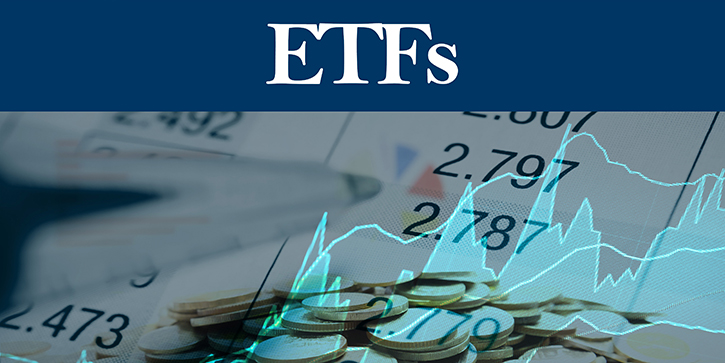
Joe “Soros” Sixpack
-
 Jared Dillian
Jared Dillian
- |
- September 7, 2017
- |
- Comments
Before we begin, be sure to check out Episode 9 of The Monthly Dirtcast. My guest is New York Times bestselling author Turney Duff, and we’re talking about the business of publishing.
If you have ever considered writing a book, you should probably tune in.
* * * * * * *
Here’s the least original statement of 2017: There are a lot of different ETFs. There are:
- Equity ETFs
- International ETFs
- Fixed income ETFs
- Currency ETFs
- Commodity ETFs
- Volatility ETFs
There are a few others I forgot, plus leveraged and inverse versions of most of these.
As you know, macro investing is where you take a top-down view of economic trends. You then take long or short positions in: equities, international equities, fixed income, currencies, commodities, volatility… with or without leverage.
WAIT A MINUTE.
ETFs have made it possible for everyday investors to invest like George Soros.
Except most everyday investors inevitably do a much worse job than George Soros!
Still, it is lots of fun. It is just probably not in the best interests of your retirement savings.
Just Because You Can, Doesn’t Mean You Should
ETFs give people the ability to do lots of different things. ETF innovators have managed to securitize just about anything.
I think we reached the last frontier in August when a LIBOR ETF was announced (it is leveraged, naturally). So you can trade LIBOR, you can trade a basket of junior silver miners, you can trade double inverse volatility, you can trade the shape of the yield curve, and you can trade Indonesia.
But I’ll bet you that the people who are investing in Indonesia have not done a lot of work on Indonesia. And I’ll bet you there are people speculating on the yield curve who have not done a lot of work on the yield curve.
Moral of the story: Just because you can do these things, doesn’t mean you should.
One thing a lot of investors don’t realize is that professional investors put an awful amount of time and effort into research.
I do a fair amount of research in the course of writing newsletters. And sometimes, I will meet with a portfolio manager who is working on the same trade.
Like what you're reading?
Get this free newsletter in your inbox every Thursday! Read our privacy policy here.
Many investors haven’t done the work. They don’t have the time (they work day jobs) and they don’t have the scale (they don’t have a team of analysts working with them, with access to all the market data in the world).
Nobody likes to think of themselves as the patsy at the poker table. But you can’t compete with the pros.
Intermission
There’s a reason I opened this 10th Man with “the least original statement of 2017.” And that’s because ETFs are breaking all kinds of records this year: record numbers of ETFs, record inflows, record assets under management, record low fees. We live in The Age of the ETF.
It’s making me pretty curious about the “state of The 10th Man nation” when it comes to ETFs. What are you guys investing in? Why? How?
Normally I’d say “answers on a postcard,” but I’d appreciate it if you could take a few minutes to answer some questions on ETFs through this link:
There are ten questions, but seven are multiple choice, so it really won’t take you long.
Oh, and there’s a free copy of my latest report in it for you. It’s called Investing in the Age of the Everything Bubble and I can promise it’s a great (and useful) read.
Despite What I’ve Said, ETFs Are Your Friend
I am no financial Luddite. I think the ETF is one of the top five financial innovations of the last 100 years! Giving people access to stuff they never had access to before is a great development.
Thirty years ago, you couldn’t buy Indonesia at all. OK—maybe there was a closed-end fund, but that has its own issues. Aside from that, the only way to buy Indonesia was to be Mr. Big Time Portfolio Manager and access foreign markets through a big broker like Goldman Sachs.
So I would never be so paternalistic as to suggest that people should be prevented from trading this stuff for their own good. No. What I am saying is:
- Macro trading is a lot of work.
- You probably don’t have time to do the work.
- So you should be realistic about your expectations.
If you accept that and still really want to be a dedicated ETF investor (survey is this way), then here’s what you need to do.
Determine your asset allocation, and pick some broad-based, low cost ETFs, keeping concentration and correlation in mind. Try to avoid making radical changes to the portfolio unless absolutely necessary. And think long-term: 5-10 years, not 1-2 years.Sound simple? If it does, it kind of shouldn’t.
One final personal note—it is possible that I will be affected by the very powerful Hurricane Irma (I live in South Carolina). If I am forced to evacuate, publication of The 10th Man may be interrupted. I’ll keep you posted.
subscribers@mauldineconomics.com

 Jared Dillian
Jared Dillian